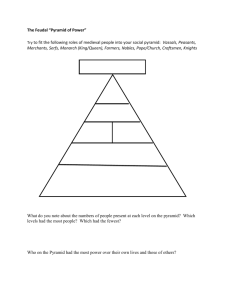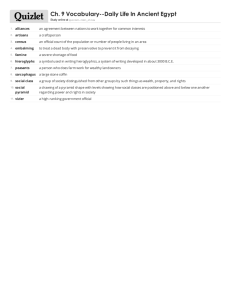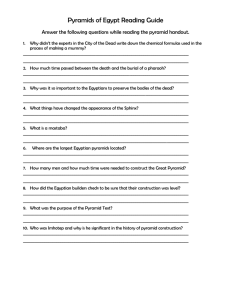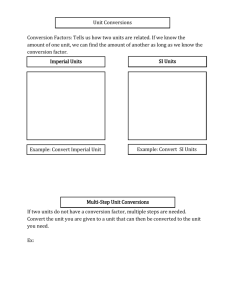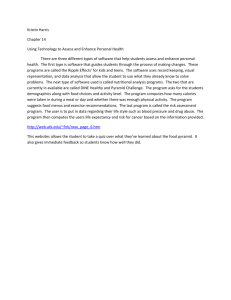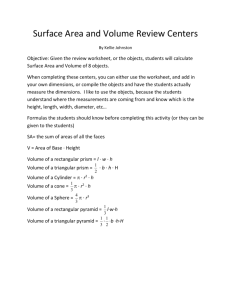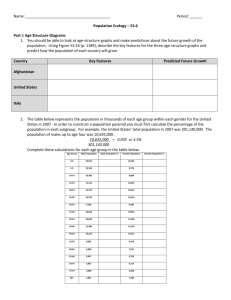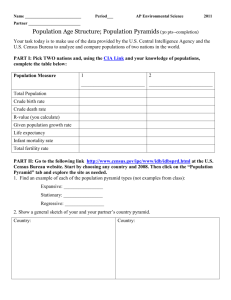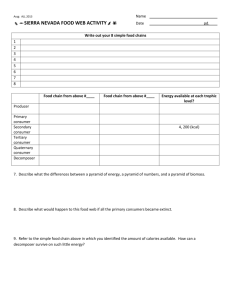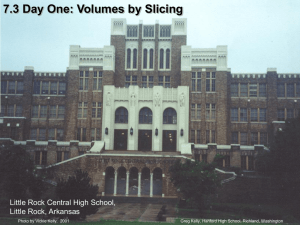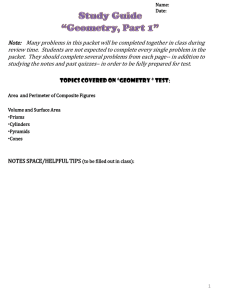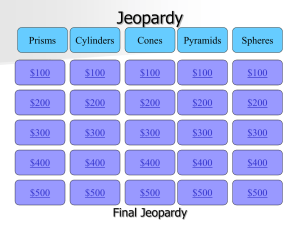Solids worksheet take home
advertisement
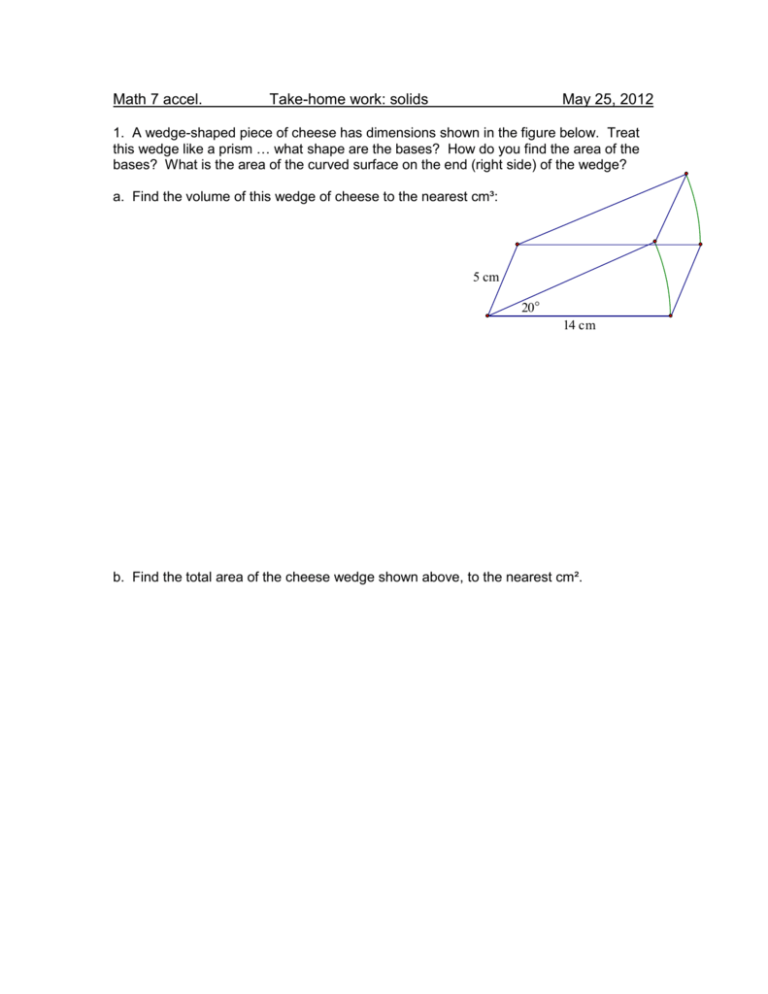
Math 7 accel. Take-home work: solids May 25, 2012 1. A wedge-shaped piece of cheese has dimensions shown in the figure below. Treat this wedge like a prism … what shape are the bases? How do you find the area of the bases? What is the area of the curved surface on the end (right side) of the wedge? a. Find the volume of this wedge of cheese to the nearest cm³: 5 cm 20 14 cm b. Find the total area of the cheese wedge shown above, to the nearest cm². 2. A large drinking trough for cattle is a right isosceles trapezoidal prism as shown in the diagram at right. If one gallon = 231 in³, how many gallons of water does the trough hold (to the nearest whole gallon)? 48" 6 ft 26" 28" 3. A cone with radius 2” and height 4” is topped by a hemisphere, like an ice cream cone. Find the total volume and surface area. Note that the surface area does not include the area of the surfaces where the cone and hemisphere meet. 4. A cylinder has height 15 cm and radius of 20 cm. Find the surface area and volume of the cylinder. 5. The figure at right shows a truncated pyramid – a pyramid with its top 6 inches cut off. The height of the original (whole) pyramid was 15 inches, and the height of the truncated pyramid is 9 inches. Find the volume of the original (whole) pyramid and of the truncated pyramid. 4 10 10 6. Consider the pyramid with height of 9 cm and a square base that is 6 cm on a side, as shown in the figure to the right. Find the following – leave radicals in your answers. a. The slant height. b. The length of a lateral edge. 9 cm 6 cm c. The area of one lateral face. 6 cm d. The total surface area. e. The volume.
